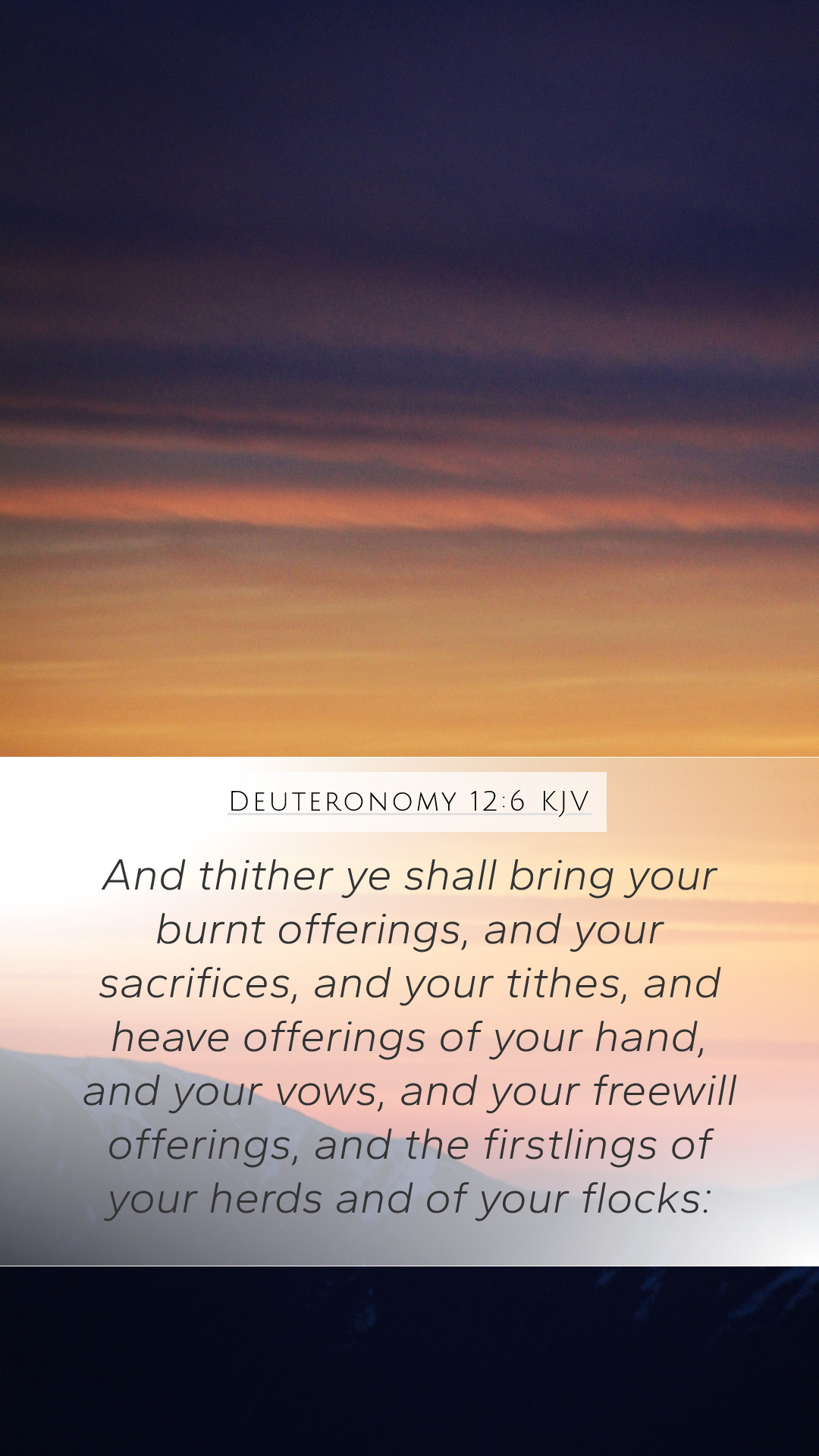Understanding Deuteronomy 12:6
Deuteronomy 12:6 states: "And thither ye shall bring your burnt offerings, and your sacrifices, and your tithes, and heave offerings of your hand, and your vows, and your freewill offerings, and the firstlings of your herds and of your flocks." This verse emphasizes the importance of bringing offerings to the place that the Lord designates for His worship, highlighting fundamental principles regarding the worship of God.
Key Themes in Deuteronomy 12:6
- Centralization of Worship: This verse underscores the practice of centralizing Israel's worship in one designated place, which signifies unity among the people of Israel.
- Types of Offerings: The diversity of offerings showcases the different dimensions of worship, including burnt offerings and freewill offerings, pointing to an ordered approach to approaching God.
- God's Sovereignty: The act of bringing offerings to the specified location reflects acknowledgment of God's authority and provision.
Commentary Insights
Matthew Henry notes that the requirement for offerings unifies the worshippers, encouraging a collective approach to honoring God. He highlights that these offerings are a means of expressing gratitude and devotion, serving both individual and communal faith journeys.
Albert Barnes emphasizes the importance of dedicating oneself to God through these offerings. He suggests that the phrase "thither ye shall bring" reminds the Israelites of the significance of obedience and proper homage in their faith practices, fostering a deeper connection to divine purpose.
Adam Clarke elaborates on the specific nature of the offerings, relating them to both the harvest and the herds. He interprets them as symbols of the people’s labor and commitment, inseparable from their covenant relationship with God, reinforcing the principle of sacrificial love and duty to God in one's daily life.
Spiritual Applications
This verse can be applied in several ways:
- Worship with Intent: When organizing modern worship, whether in personal or communal settings, understanding the intentionality behind offerings can deepen one's worship experience.
- Generosity and Gratitude: The various offerings encourage believers today to recognize their resources and blessings as a reflection of their devotion to God.
- Prioritizing God's Commandments: Adhering to God's guidelines in worship can guide personal choices and facilitate a righteous living aligned with faith and spiritual growth.
In-depth Bible Verse Analysis
An in-depth examination of Deuteronomy 12:6 leads to a greater understanding of various aspects:
Historical Context: The Israelites were transitioning into a new land and were instructed to establish a central point for worship. This directive served to distinguish their spiritual practices from those of the surrounding nations.
Socio-Cultural Significance: Bringing offerings was not just a religious duty; it was also a social norm that fostered community identity, reinforcing the bonds among the Israelites.
Related Bible Cross References
- Leviticus 1:3-17: Details the procedures for burnt offerings.
- Malachi 3:10: References bringing tithes into the storehouse.
- Hebrews 13:15: Encourages the offering of praise and good works as sacrifices to God.
Conclusion
In summary, Deuteronomy 12:6 encapsulates key elements of worship, obedience, and community among the Israelites. Understanding this verse enhances one's appreciation for the structure of ancient worship and its implications for modern believers. By analyzing this verse through various commentaries, we uncover rich insights that continue to resonate in today's spiritual practices.
For deeper Bible verse meanings, Bible verse interpretations, and comprehensive Bible verse commentary, consider joining Bible study groups or engaging in online Bible study to further explore and apply these sacred texts.


